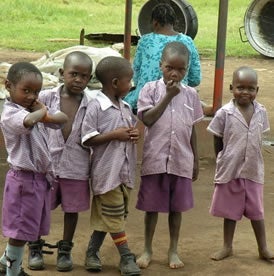Dr. Eggums' research is focused on children's, social withdrawal, social competence, as well as socio-emotional and school-related adjustment in the US and international contexts.
Recent Projects
- Family Migration and Early Life Outcomes (FAMELO) - Migration alters opportunities, resources, and relationships, but we don't fully understand the impact of migration on children who are left behind. This NICHD-funded program (P01HD080659), led by Dr. Jennifer Glick, focuses on how differences at child, family, and community levels alter relations between migration and children's outcomes in Nepal, Mexico, and Mozambique. Dr. Eggums' ECLIPSE Studies Lab is leading Project 1 (R01) of the program, which is focused on understanding: what it means to be socially competent and well-adjusted in Nepal, Mexico, and Mozambique; and how familial migration is associated with children's socio-emotional adjustment and its socialization.
- Family Migration Context, Socialization, and Children’s Socio-emotional Development (FAMELO-FUN) - Migration alters opportunities, resources, and relationships, but we don't fully understand the impact of migration on children who are left behind. This NICHD-funded project (R01HD101527), led by Dr. Natalie Eggum, follows children from over 2,300 households who previously participated in 2 time points of data collection (FAMELO) and provide new data on the children, their primary caregivers, and their fathers at 2 additional time points. The research will illustrate the complex ways in which family members’ migration predicts children’s socio-emotional outcomes. The specific aims of the project are: 1) to investigate reciprocal effects of caregivers’ parenting and children’s socio-emotional development, 2) to determine how family members’ migration is associated with socio-emotional outcomes, and how child, family, and migration characteristics moderate associations, and 3) to explore fathers’ roles in children’s socio-emotional outcomes, and compare fathers’ familial relationships and socialization for those who do versus do not participate in migration.
- Social Withdrawal, Anxiety, and Depression (SAD) - The purpose of this study is to better understand social withdrawal subtypes and contextual variations in shyness in early adolescents. Specifically, we aim to: 1) develop better measures of social withdrawal and shyness subtypes, and 2) examine which subtypes of withdrawal are most strongly related to adjustment problems.
For additional information and CV: https://isearch.asu.edu/profile/243959

